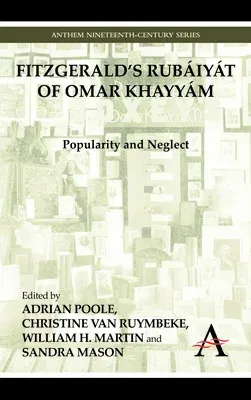Fitzgerald's Rubáiyát of Omar Khayyám: Popularity and NeglectHardcover, 1 July 2011

Temporarily out of stock
Free Delivery
Cash on Delivery
15 Days
Free Returns
Secure Checkout

Part of Series
Anthem Nineteenth-Century Series, Anthem Middle East Studies, Anthem Studies in Popular Culture
Part of Series
Anthem Nineteenth-Century
Part of Series
Anthem Studies in Popular Culture
Part of Series
Anthem Middle East Studies
Print Length
296 pages
Language
English
Publisher
Anthem Press
Date Published
1 Jul 2011
ISBN-10
0857287818
ISBN-13
9780857287816
Description
Product Details
Book Format:
Hardcover
Country of Origin:
US
Date Published:
1 July 2011
Dimensions:
23.11 x
15.75 x
2.29 cm
ISBN-10:
0857287818
ISBN-13:
9780857287816
Language:
English
Location:
London
Pages:
296
Publisher:
Series:
Weight:
612.35 gm